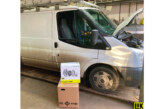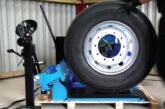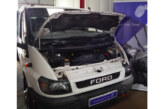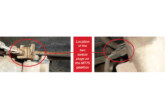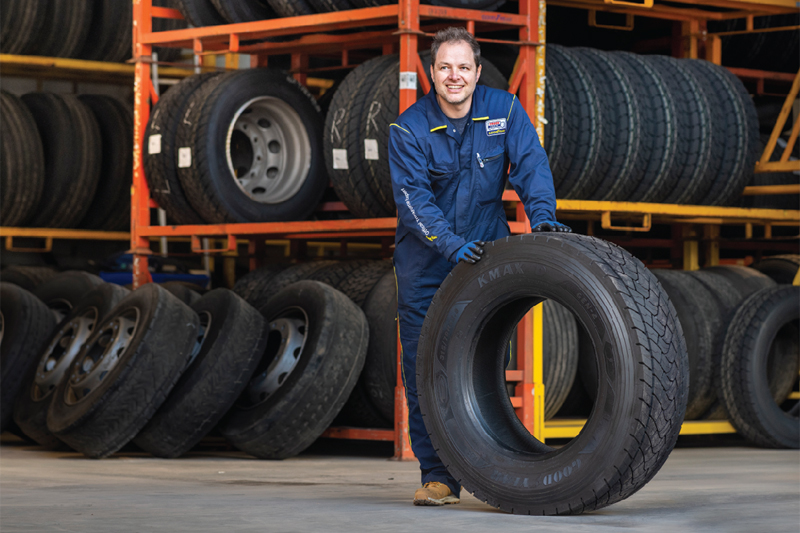
Tyre manufacturer Goodyear argues that fleet operators looking to streamline fuel costs need to start by looking at their tyres.
The fleet industry is facing significant challenges, with rocketing fuel prices leaving many operators eager for ways to streamline and economise.
One avenue that many could benefit from exploring is that of advanced tyre and fleet management solutions, and how they can help to increase uptime, improve databased decision-making and – crucially – yield fuel savings.
In 2017, research by the Road Haulage Association found that tyres were the second lowest area of fleet spend, accounting for just 2% of costs. What it seems many may not be aware of is just how much tyres can impact on other expenses. Goodyear has found that choosing the right tyres can have a significant impact on overall operating expenditure. With fuel consumption, specifically, just 1 bar of under-inflation can add 900 litres per year in costs per vehicle.
Goodyear’s Total Mobility offers a suite of data-driven monitoring and predictive analytics solutions, tailor-made for every fleet customer. It includes a unique toolbox of smart technologies and predictive solutions, with over 2,000 TruckForce service network locations providing a 24/7 road assistance breakdown service. And, of course, it includes tyres. Goodyear’s FUELMAX ENDURANCE range, for example, has been specifically designed with efficiency in mind.
Goodyear has also launched its Drive Results campaign, addressing the needs and pain points of transportation and logistics companies. The campaign is built around field data and core savings in terms of fuel efficiency, increasing uptime, managing costs and reducing admin.
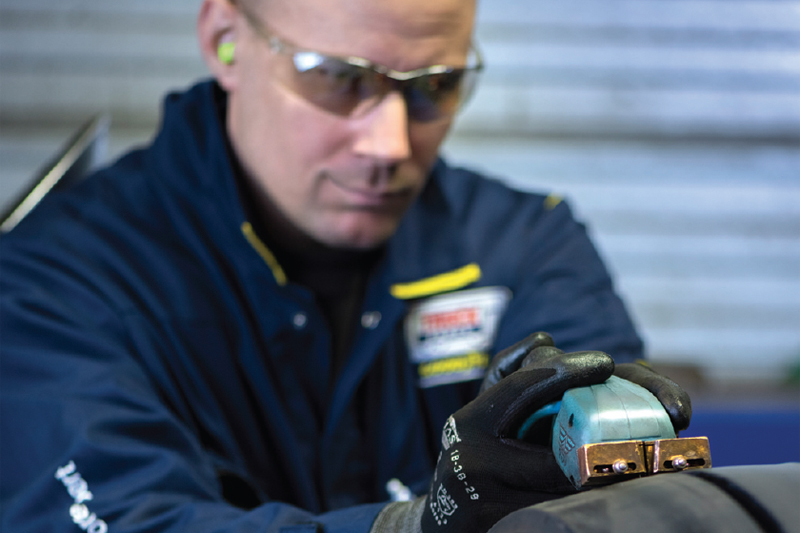
The testimonials from Drive Results include one operator describing time savings of up to 15 hours when inspecting a fleet of 50 trucks. This led to £85,000 of potential cost savings per year, with the implementation of smart proactive monitoring solutions such as the CheckPoint (Drive-Over-Reader), DrivePoint and the Tyre Pressure Monitoring System. There are case studies of fleets even letting go of the spare tyres on its trucks, as they can rely on ServiceLine24h getting them back on the road within 120 minutes of a breakdown.
Lowering carbon footprint
Creating added value and staying cost-effective isn’t all fleet managers must consider. Whether improving air quality or lowering CO2 emissions and the fleet’s dependency on fossil fuels, tyres can play a vital role in tackling environmental challenges too. A smart tyre choice and effective management can reduce a fleet’s carbon footprint in several ways:
- Rolling resistance – The lower the rolling resistance, the lower the tyre-road friction and the lower both fuel consumption and emissions. Low rolling resistance tyres can also further enhance the positive effects of eco-driving. LRRs can also reduce emissions up to 4%.
- Tyre pressures – Low tyre pressure leads to increased energy consumption and unnecessary CO2 emissions, with underinflation by 20% resulting in a 30% reduction in tyre life. Advanced tyre pressure monitoring systems such as Goodyear TPMS warn of any deviations in tyre pressures and temperatures. Combined with telemetry, this data can be monitored constantly via centralised predictive and prescriptive tyre management programs, sending an alert to the driver and fleet manager in case of a potential breakdown risk, increasing uptime up to 90%.
- Wheel geometry and axle alignment – Checks on wheel geometry and axle alignment are often neglected, leading to increased rolling resistance and irregular or increased tyre wear. Devices such as the Goodyear CheckPoint (Drive-Over- Reader) can quickly and accurately scan the tyre wear, pressure, load and tread depth, with just a quick scan every time a vehicle enters the depot.
- Rolling radius – The more goods that can be carried, the greater the efficiency per vehicle, as getting more goods into fewer vehicles means less fuel used. Reducing the tyre radius – with or without reducing the rim diameter – can reduce chassis height, which in turn can increase the load volume in a truck or trailer.
Goodyear, as a mobility partner, is striving to help fleets optimise fleet/operational performance, reduce costs plus downtime and lower carbon emissions. As solutions become more integrated, the value of digitisation and how fleets respond to these challenges hold an even greater role in the future of the industry.



